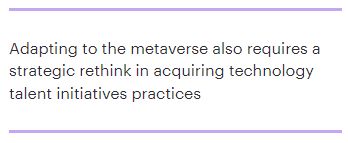To support continued resilience in the leisure and hospitality industry, WTW specialists look at the key themes from the WTW Leisure and Hospitality Futures Report one year on.
In 2023, we shared the WTW Leisure and Hospitality Futures Report, commissioned to understand the risks, megatrends and strategic issues likely to affect trading for the leisure and hospitality (L&H) sector over the next 10 years and beyond. One year on, we reconsider the key themes we examined in our research.
Below, we summarise the key developments since 2023 around the megatrends we initially identified – new frontiers in technology, climate and sustainability, changing consumer preferences, transformation of people and workforce – and how your business should respond to thrive in the current environment and into the future. We also offer a priority action for each megatrend for the rest of the year ahead.

New frontiers in technology: Embrace technology, review security
Actively embracing technology continues to drive efficiency and enhance the customer experience. By adopting emerging technologies such as AI-driven customer service bots, automated booking systems and personalised menus, your leisure and hospitality business can create seamless and personalised experiences for your customers. This not only improves operational efficiency but also enhances customer satisfaction and loyalty.
However, as technology becomes more integrated into leisure and hospitality operations, your business must actively address cybersecurity risks to protect customer data and prevent breaches.
You should regularly conduct security assessments, invest in secure technology infrastructure and provide employee training on cybersecurity best practices. By proactively addressing cybersecurity risks in this way, you can safeguard your reputation, avoid regulatory fines and maintain customer trust.
2024 priority action: Make cybersecurity a top priority. Horizon scanning will help you focus on emerging and future threats and remain agile when it comes to managing and mitigating these.

Climate and sustainability: Act on consumers prioritising sustainability
Leisure and hospitality businesses must actively prioritise sustainable practices to keep ahead of your customers' expectations, can support differentiation themselves and contribute to long term climate and sustainability-related goals and developing legal requirements.
2024 priority action: Ensure your external messaging on your green credentials and activities matches your corporate initiatives to avoid 'greenwashing' and potential negative commentary of your brand that could hit revenues.

Changing consumer preferences: Leverage technology to meet consumer expectations
Consumer preferences and demands have significantly evolved over the past year. Personalisation, convenience and holistic experiences have become key drivers of consumer choice. Staying ahead of peers in this space can attract and retain customers but can open up new risk exposures or create inefficiencies in your risk and insurance program.
2024 priority action: Review insurance or risk transfer to ensure you understand any additional cyber risks and associated costs in terms of potential third-party liabilities and potential business interruption.

Transformation of people and workforce – Rethinking your employee offer for the metaverse
The risks to metaverse users and those responsible for maintaining virtual spaces are not fully understood and could create long-term health or mental risk issues, for example, impact on adolescent brain development, novel eye, hand, mental, or physical conditions and coordination issues.

Adapting to the metaverse also requires a strategic rethink in acquiring technology talent. Success could depend on differentiating your employee experience by addressing broader professional and personal needs.
2024 priority action: Having mental health champions and mental health training included as part of your wellbeing strategy for employees can support employee mental health as well as enhance the overall employee experience.
Next steps on building resilience in the leisure and hospitality industry
The past year has highlighted the importance of resilience and risk management for leisure and hospitality businesses. In addition to considering the implications of megatrends in isolation, it's also crucial you assess overall resilience and develop disaster recovery and risk management plans. Identifying pinch points and ensuring your business model can withstand sharp shocks will help you navigate uncertainty and maintain stability.
Specifically, quantifying risk interconnectivity and modelling the aggregated impact of risks can help your business build the right risk management and insurance program to protect revenues and uncover opportunities as existing trends develop and new ones emerge.
For a smarter way to navigate the emerging risks impacting the leisure and hospitality sector, get in touch with our sector specialists.
The content of this article is intended to provide a general guide to the subject matter. Specialist advice should be sought about your specific circumstances.
